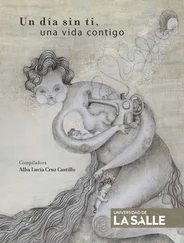The entire Battle of St. Sidryn’s, as it came to be named, took fewer than five minutes, from the instant the first raider entered the courtyard until the last of the surviving raiders fled back through the gate. Later, Yozef recollected that the battle had lasted hours.
The villagers and the abbey staff stared, stunned, at the courtyard. Bodies carpeted the blood-covered cobblestone. A few portions of the barricade had fallen or been pulled down, mostly the side facing the gate and including the gap. Bodies of both raiders and defenders lay inside the barricade in several places. No raider was standing, but many were wounded and unable to flee with their comrades. The disbelief that they’d survived held the villagers for almost a minute, then the moans and screams of the wounded from both sides brought them back from wherever their minds had gone. A roar of hatred swelled, and the defenders poured over the barricades to finish those who had intended to destroy their world.
Yozef saw one raider sitting on the ground, one leg nearly severed at the knee, wildly swinging his sword to ward off three women with spears and a pitchfork. They didn’t kill him immediately, but danced around him and kept him trying to watch all three, pulling their stabs enough for the blades or prongs to pierce flesh but not deep enough to be fatal. Finally, either from loss of blood or fatalism, he gave up and dropped his sword. One young woman Yozef recognized as part of the decoy group, still bare from the waist up, stood in front of the raider, shook her breasts at him, and yelled, “Take a look, you asshole! These are the last tits you’ll ever see!” and drove her spear into his throat.
Most raiders were dispatched quickly. The islanders weren’t interested in prisoners.
Yozef turned to Denes. “Denes, we need a few prisoners to question.” Denes looked at him but didn’t respond.
“Denes! Prisoners can tell you who these people are, where they come from, and how many more there might be!”
Denes’s eyes focused on Yozef’s for the first time, as his mind processed what Yozef had said. He then strode out into the courtyard and yelled out something. Whatever he said, two of the men stood guard over a small knot of wounded raiders, while the rest were dispatched to whatever god or afterlife they believed in.
Yozef’s legs gave out, and he dropped to the ground, before he realized it was covered with blood. He jumped back to his feet, looking down at himself. His arms were covered in dirt, sweat, and drying blood from the raider Carnigan had axed. Yozef felt his pants wet. He looked down. He had peed himself. Carnigan walked over to Yozef, grabbed him by the scruff of his neck, and marched him over to a water trough.
“Happens to many the first time,” he grunted, just before dunking Yozef completely into the water. Then he jerked Yozef back, stood him upright, and left him there. Yozef was now wet everywhere, evidence of his weak bladder obscured.
The St. Sidryn’s medicants dropped their weapons, for all able bodies had been part of the defense, picked up their medical bags, and began tending the wounded. Considering the number of defender bodies, the casualties of the defenders were relatively few. That fact was of little consolation to those few. The dead themselves no longer cared, but their families either knew or would soon know. Injuries varied from abrasions and bruises that would heal on their own to wounds that required staunching and stitching, to a few truly hideous wounds. One man was missing half of his lower jaw. Several had deep slashes that might have reached internal organs. A man missing an arm below the elbow moaned, as medicants carried him inside. And others. Yozef wandered around, thinking to himself that he wanted to help, but mainly just moving and doing something , instead of thinking and recollecting what had just happened and how close he’d come to dying.
Yozef had dropped the old spear. His leg ached where the spent round had struck. His head spun. He was about to look for Denes and Carnigan, and when he turned, right under his feet sprawled the body of a young boy. A gash gaped across his chest, probably by a raider axe, since the wound cleaved halfway through the small chest. The boy’s eyes gazed wide, sightless at the sky, a surprised look on his face. It was Yonkel Miron. Yozef stared disbelieving, hoping somehow he was wrong. He sank to his knees, putting a hand on the boy’s bare leg already growing cold. Yonkel would never attend the abbey scholasticum for which Yozef thought he had potential. The boy’s curiosity, boundless energy, and potential were gone. Yozef’s mouth tasted bile at the pointlessness.
When once again aware of his surroundings, Yozef realized that other people knelt around Yonkel. Yozef had never sensed them come. It was Yonkel’s family. He recognized the parents, a sister, other children who must be siblings, cousins, and several adults—aunts, uncles, and grandparents. Most cried. They must have waited for Yozef to return to the world, for once he made eye contact, the father patted him on the shoulder, and weeping women wrapped Yonkel’s body in a cloak and laid it on a cloth. The men then picked up the corners, and the family walked out of the gate with their sad burden.
While Yozef knelt beside Yonkel, Denes, the abbot, and several other men climbed the rampart to look seaward. It had been half an hour since the last raider fled the courtyard. There were other raider groups, the one that had deployed for a possible assault on the abbey side wall, and the group that had first gone to the village. If they chose, the raiders could make another try at the abbey, but Denes didn’t think they would.
“Doubtful,” he told the abbot. “These are not Narthani, although I suspect they are in the employ of the Narthani. These are pirates, raiders, general free-booters. They aren’t out for conquest, only gold and slaves. They won’t shed blood if it’s not in their interest. The Narthani might try again after their losses, but not these people.”
He was right. The different raider groups gathered out of musket range and then headed toward the shore. Denes and the others watched, as they loaded onto their longboats and rowed to the waiting five ships.
Homeward Bound
Musfar Adalan watched the raid from the aftcastle of his flagship, using a powerful telescope made in Iraquinik. It had cost enough that he almost didn’t buy it, but it had proved its worth many a time. The edge of the village and the abbey complex were visible upslope from the beach. Although from a mile he couldn’t resolve details, he observed enough to know something had gone wrong. Instead of the assault on the abbey following Abel’s plan, a number of men had gone straight for the main gate—which even from this distance looked open. Something could have made Abel change the plan at the last moment, but Musfar doubted it. Abel was meticulous in planning and loath to change, unless necessary. More likely, Abel lost control of the Benhoudi.
As men poured through the abbey main gate, he saw a group of men headed toward the side wall of the complex, according to plan, then stop as Musfar heard faint musket fire—two volleys. There was no way the Benhoudi would be firing musket volleys in this situation; it had to be the islanders. Three or four minutes later, a small group ran from the abbey back toward the main body, far fewer than had entered the main gate. Obviously, most of his men were still inside, and the speed of the runners and the lack of new musket fire likely meant no more men would be coming out. The carefully planned raid had collapsed.
The group of men sweeping the village joined the remaining men nearer the abbey; then a few minutes later the entire mass headed to the beach. There was only one explanation. The attack on the abbey had cost so many men that Abel decided it was not worth continuing. Either there were more men inside the abbey complex than the Narthani had told them, or Abel believed the defenders too well positioned to be defeated without unacceptable loses.
Читать дальше












